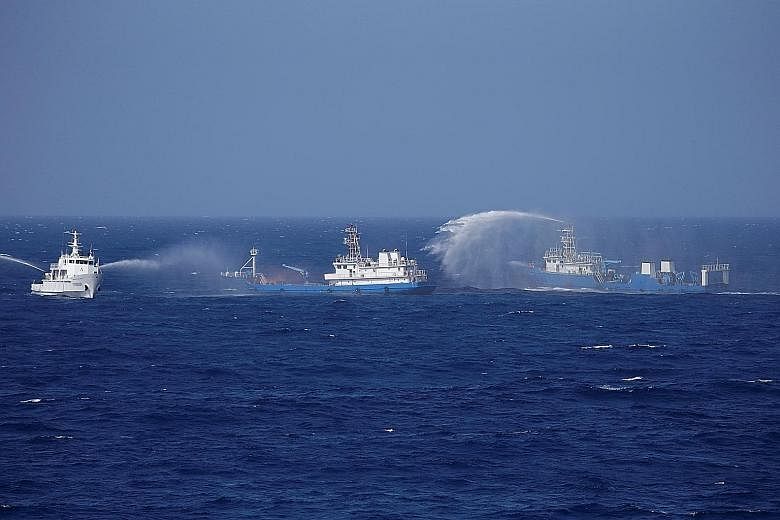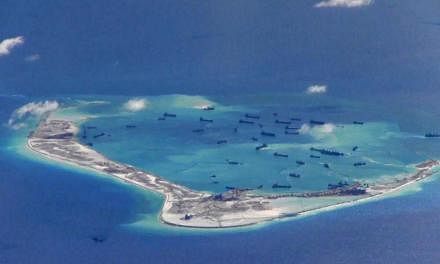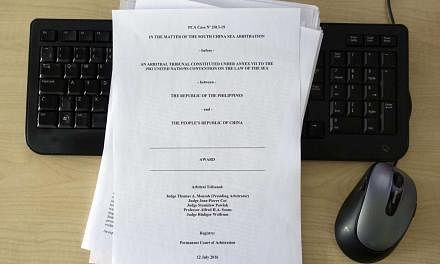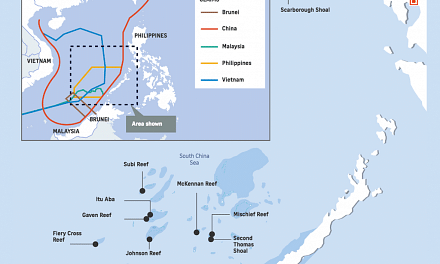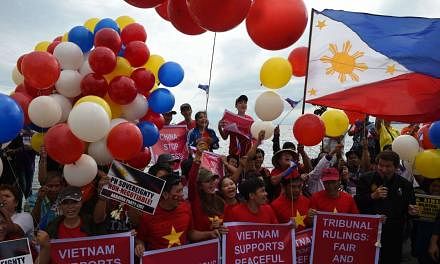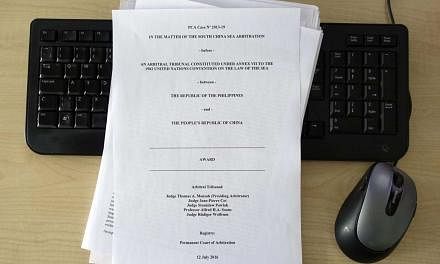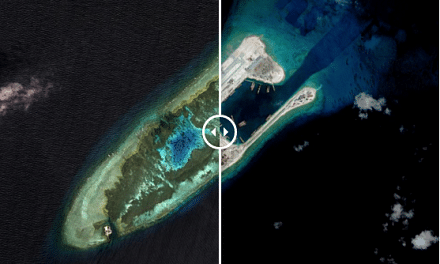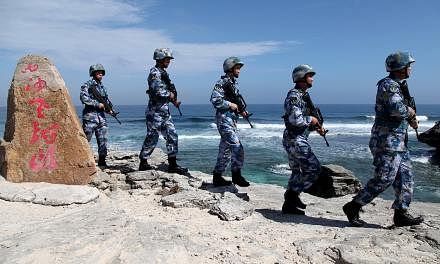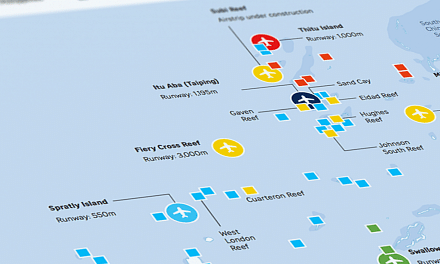Philippine President Rodrigo Duterte has asked former president Fidel Ramos to help start bilateral talks with China as a special envoy, two days after a United Nations-backed tribunal rejected Chinese claims to most of the South China Sea.
In a late dinner forum yesterday at his former university, Mr Duterte said he would ask Mr Ramos to "go to China to start the talks".
But Mr Ramos, who was in the audience, said that at 88 years old, he might be too old to take on the task.
Hours earlier, Manila had urged China to respect the arbitral tribunal finding on Tuesday that China's claim of historic rights over two- thirds of the South China Sea "has no legal basis".
The Philippine Foreign Ministry said in a statement that Foreign Minister Perfecto Yasay will discuss - during the two-day Asia-Europe Meeting (Asem) summit starting in Mongolia today - "the need for parties to respect the recent decision".
"Secretary Yasay will discuss, within the context of Asem's agenda, the Philippines' peaceful and rules-based approach on the South China Sea and the need for parties to respect the recent decision," said the ministry.
The Asem summit brings together nations from Asia and Europe, including states with competing territorial claims in the South China Sea, namely, China, the Philippines, Vietnam, Malaysia and Brunei.
Yesterday's statement was the strongest response so far from Manila to the verdict.
In his first comments on Tuesday, Mr Yasay had said only that Manila welcomed the decision and called for "all those concerned to exercise restraint and sobriety".
Mr Duterte is said to be preparing to hold bilateral talks with China, with expectations that the ruling has given the Philippines an edge.
"What he (Mr Duterte) said was, we'll start the bilateral talks, and now we're starting from a better position," Budget Minister Benjamin Diokno told reporters yesterday.
Mr Duterte faces calls at home for a strong reaction to the sweeping verdict, but also pressure from the United States to not capitalise on the ruling, as well as the need to keep the goodwill of China, his country's second-largest trading partner.
He said before the ruling came out that he did not want to "taunt" China or "flaunt" the ruling.
Manila said earlier it was crafting a measured response that will leave the door open to talks with Beijing, without setting aside the ruling.
China has said it is willing to open talks with the Philippines if the tribunal's ruling is set aside.
The US, which has conducted freedom of navigation operations near Chinese-controlled reefs to challenge what it sees as China's excessive maritime claims, is using quiet diplomacy to persuade the Philippines, Indonesia, Vietnam and other Asian states not to move aggressively to capitalise on the ruling, US officials said on Wednesday.
"What we want is to quiet things down so these issues can be addressed rationally instead of emotionally," an official told Reuters on condition of anonymity, referring to private diplomatic messages.
Some of these messages were sent through US embassies abroad and foreign missions in Washington, while others were conveyed directly to top officials by US Defence Secretary Ash Carter, US Secretary of State John Kerry and other senior officials, sources said.
"This is a blanket call for quiet, not some attempt to rally the region against China, which would play into a false narrative that the US is leading a coalition to contain China," the official said.
Asean, of which the Philippines is a member, is not expected to issue a joint statement on the ruling, according to diplomats interviewed by Agence France-Presse.
"Asean officials had prepared a draft text, but there was no agreement to release a joint statement," said one diplomat, adding that China was believed to have leaned on its Asean allies Laos and Cambodia to prevent the grouping from issuing a joint statement.
"Some Asean countries are definitely not happy. Beijing's action can be seen as interference in Asean's centrality," said the diplomat.
SEE OPINION:
China does not need to always win to be great
